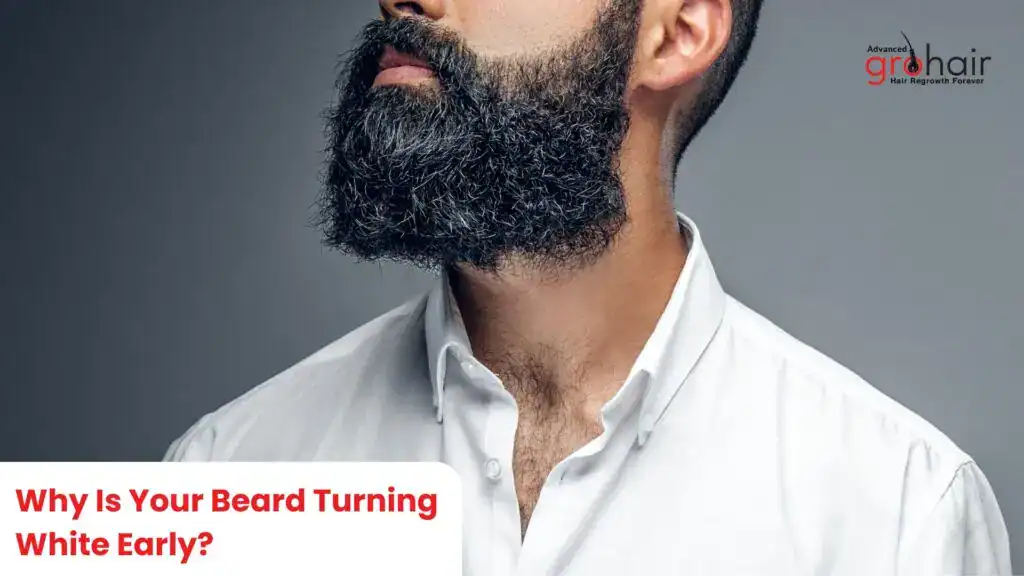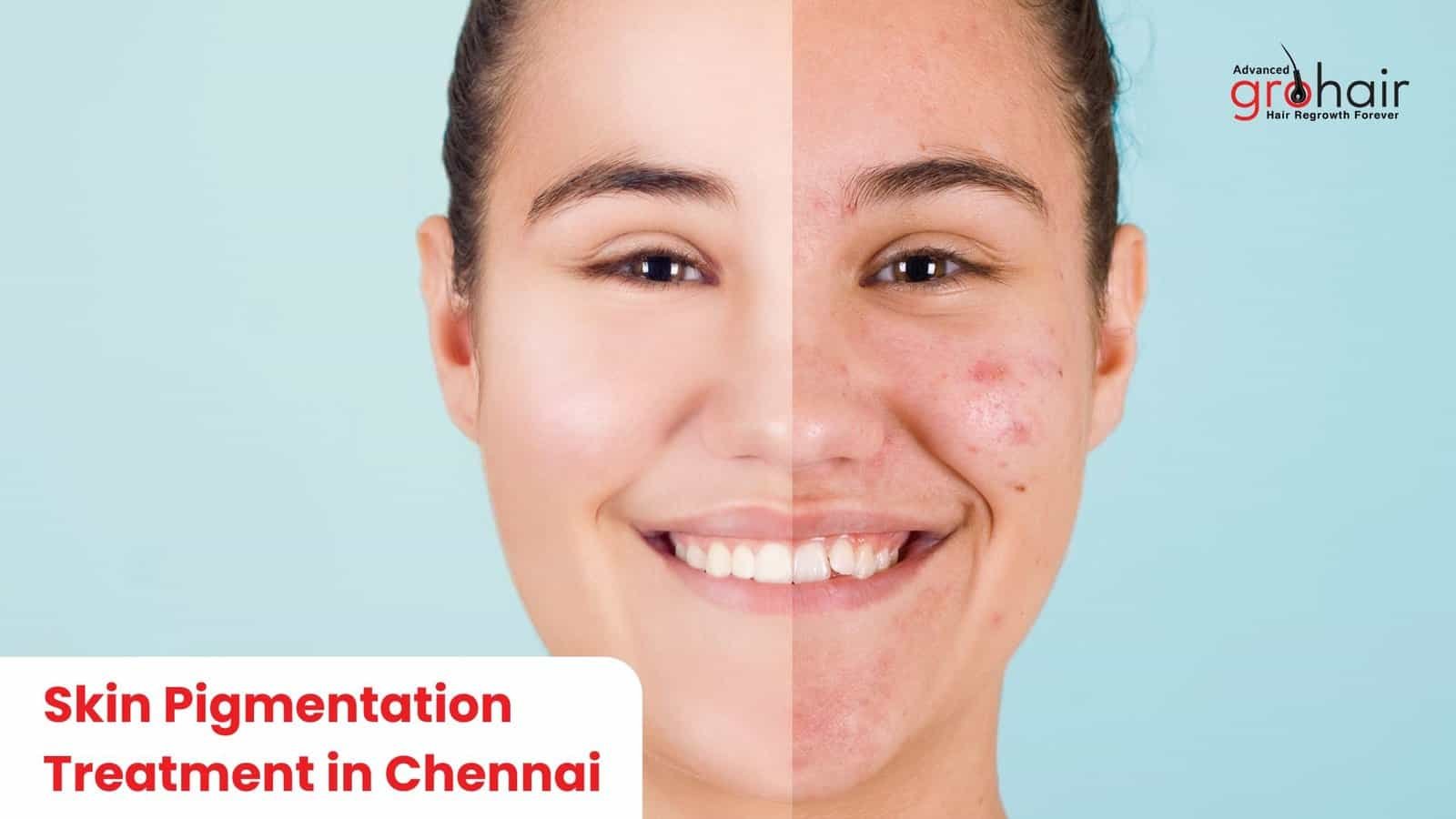Why Is Your Beard Turning White Early? Surprising Causes & Actionable Tips

Just spotted that first grey hair, didn’t you? But when your beard begins to go white prematurely in your 20s or 30s, it’s a shocker!
You wonder why your beard is growing old so quickly. You’re not the only one. This change to silver is normal, and it’s more than just ageing. It’s most often linked with ongoing stress, dietary imbalance, and life choices.
This guide is not about giving up; it’s about getting to know your beard’s tale. We’ll explore reasons behind your beard turning white early, offering clear, practical advice.
You’ll learn how to care for it, how you might slow the process, and how to confidently manage or rock that distinguished look. Let’s find out the truth regarding your early white beard.
Is It Normal to Get a Grey or White Beard Early?
Seeing that first white beard hair in your 20s or 30s can be strange. Although grey hair later is acceptable, major greying before these ages is premature greying.
So, what’s happening? Hair gets colour from melanin, made by melanocytes in hair follicles – tiny colour factories. As we age, or due to other factors, these factories slow, produce less melanin, or stop. When melanin reduces, hair grows without colour, appearing white or grey.
What’s premature? Much grey hair before the age of 30 (fair-skinned), 25 (Asian), and 20 (African origin). If your beard matches, understanding “why” can help. Ready to explore the main culprits? Let’s go!
What Causes Premature Greying of Beard Hair?
Your journey to a white beard is affected by many things, some you control, some you can’t. Let’s look closer.
1. Genetics Play a Big Role
Your family’s genes hugely influence when your beard changes colour. Did your dad or grandfathers get a silver beard early? If so, your beard turning white prematurely is likely inherited. Your genes control how long those colour-making cells stay active. Knowing it’s inherited can help you accept it.
2. Vitamin Deficiencies
What you eat affects your hair’s health and colour. Not getting enough nutrients is a common reason for early greying. Your body needs specific vitamins and minerals to produce hair colour.
Here’s what your beard needs:
Nutrient | Why It’s Important | Key Food Sources |
Vitamin B12 | Helps red blood cells feed hair roots; deficiency affects colour cells. | Meat, Fish, Eggs, Dairy, Fortified Cereals |
Vitamin C | Strong protector for hair roots; helps hair strength. | Oranges, Capsicum, Broccoli |
Zinc | Important for hair growth/repair, and keeping colour. | Nuts, Seeds, Daal (Legumes), Meat |
Copper | Essential for making melanin (hair colour). | Seafood, Nuts, Seeds, Daal, Dark leafy vegetables |
Iron | Carries oxygen to hair roots; low iron may impact colour. | Red Meat, Spinach, Lentils, Beans |
A healthy diet, rich in these nutrients, is the basis for rich hair colour and strength. But diet isn’t the only modern problem…
3. Chronic Stress & Lifestyle Factors
Constant stress is common, and studies show its effect on hair. When your body is always stressed, it can use up hair root stem cells – the cells crucial for new hair colour. This means your hair can run out of colour-making cells sooner.
Beyond stress, certain daily habits play a big part:
- Smoking: Linked to premature greying. Toxins damage colour cells, reduce blood flow.
- Alcohol & Less Sleep: Add to stress, indirectly speeding up greying.
4. Hidden Health Problems
Sometimes, early greying signals a deeper problem.Certain hidden health conditions can prevent your body from producing enough hair colour :
- Thyroid Issues: Affect body systems, impacting hair colour.
- Autoimmune Diseases: Such as Vitiligo or Alopecia Areata, can immediately turn your beard white.
- Trouble with Digestion: Issues with digestion that are interfering with nutrient absorption (e.g., celiac disease) could result in a deficiency in vitamins, thus indirectly causing grey colour.
When to see a expert/Specialist: If your overnight grey beard is a sudden one or rapidly advancing, particularly if it is associated with hair loss, a skin illness or abnormal fatigue, you will need to see a dermatologist or go and see your family doctor.
How to Slow Down the Greying Process Naturally
While genetics are involved, you are not helpless against a premature white beard. Here’s how to actively retard greying and keep your beard in tip-top shape:
- Nutrient-Rich Diet: Feed Your Follicles! Consume antioxidants (berries, spinach), protein (lean meats, fish) and healthy fats (salmon, ground flaxseed).
- Targeted Supplements (Be Careful): If you’ve had your blood work medically tested, your doc might instruct you to take B12, Biotin, D, or Zinc.
- Natural Care (Oils and Conditioners) : Massaging deeply moisturising and restorative coconut oil into the skin improves circulation and reduces dry or flaky skin. Healthy roots are maintained. Apply special beard oils (argan, jojoba) chemical-free for shine and moistening.
- Stimulate & Maintain: Massage the beard lightly with warm palms daily to energise blood flow to hair roots. Drink water also.
- Less is More: Use a high-quality conditioner to soften and untangle your grey beard. Choose mild, pH-balanced natural beard care.
Grooming & Beard Care Tips for Greying Beards
- Daily Beard Care: Gently wash your beard with a special beard wash 2-3 times/week. To soften and untangle your gray beard, apply high-quality conditioner.
- Moisture & Protection: Apply beard balms and oils every day. A vital for moisturising skin, nourishing hair, and adding shine.
- Trim Regularly: Extremely crucial for a white beard. A well-groomed beard immediately improves the salt-and-pepper look. Trims prevent split ends.
- Products to Improve: Use purple/blue-stained shampoos to prevent yellow hues. To subtly reduce, there are gradual darkening products available by certain brands for a natural, mixed appearance.
When to Seek Help From a Doctor?
While some grey hairs may be hereditary, some symptoms are a cue to seek professional consultation. Don’t delay consulting a hair professional (trichologist) if:
- If grey hair is sudden, along with hair loss or skin issues: If your beard going white suddenly occurs, or you also experience hair loss, rashes, or other dermatological problems.
- Checking if underlying health issues lead to it: If you are not usually tired, notice sudden weight loss or gain, or experience persistent digestion issues alongside greying.
- A professional who can test for underlying health problems and offer tailored guidance.
Conclusion
The truth about your beard going white prematurely is a combination of your genes, diet, constant stress, and general health. It usually is a combination.
The best news? You have more power than you know! With a focus on healthy living and maintaining your beard as well as stress management, you can make an excellent change to the health of your beard and looks.
Whether you try to spin the greys around subtly or definitely wear that silver beard out in all its glory, your beard hair deserves to be looked after.
Knowing “why” is the path to controlling healthy choices in the future for your beard. Always keep in mind that your beard is a statement, regardless of its colour.
Don’t let concern cramp your style…You owe yourself the beard, and the confidence, you desire. Go ahead, use this knowledge, and own your look!
Book An Appointment
FAQs
Can I pluck my white hair?
Plucking won’t make more grow white or bring back colour. It might harm the root; new hair will likely still be white. Not recommended.
Can vitamins make grey beard hair black again?
If greying is only due to severe vitamin deficiency, correcting it might allow some colour in new hair, but it’s rare for existing white hairs. Vitamins mainly slow more greying.
Does coconut oil help reduce white beard hairs?
Excellent for conditioning and improving blood flow. It won’t reverse existing white hairs, but a healthy root environment might delay new greying.
Is early beard greying permanent?
If genetic, usually permanent. If caused by a severe, fixable health problem, some colour can come back in new hair, though not guaranteed. See your doctor to find out.
Also Read





